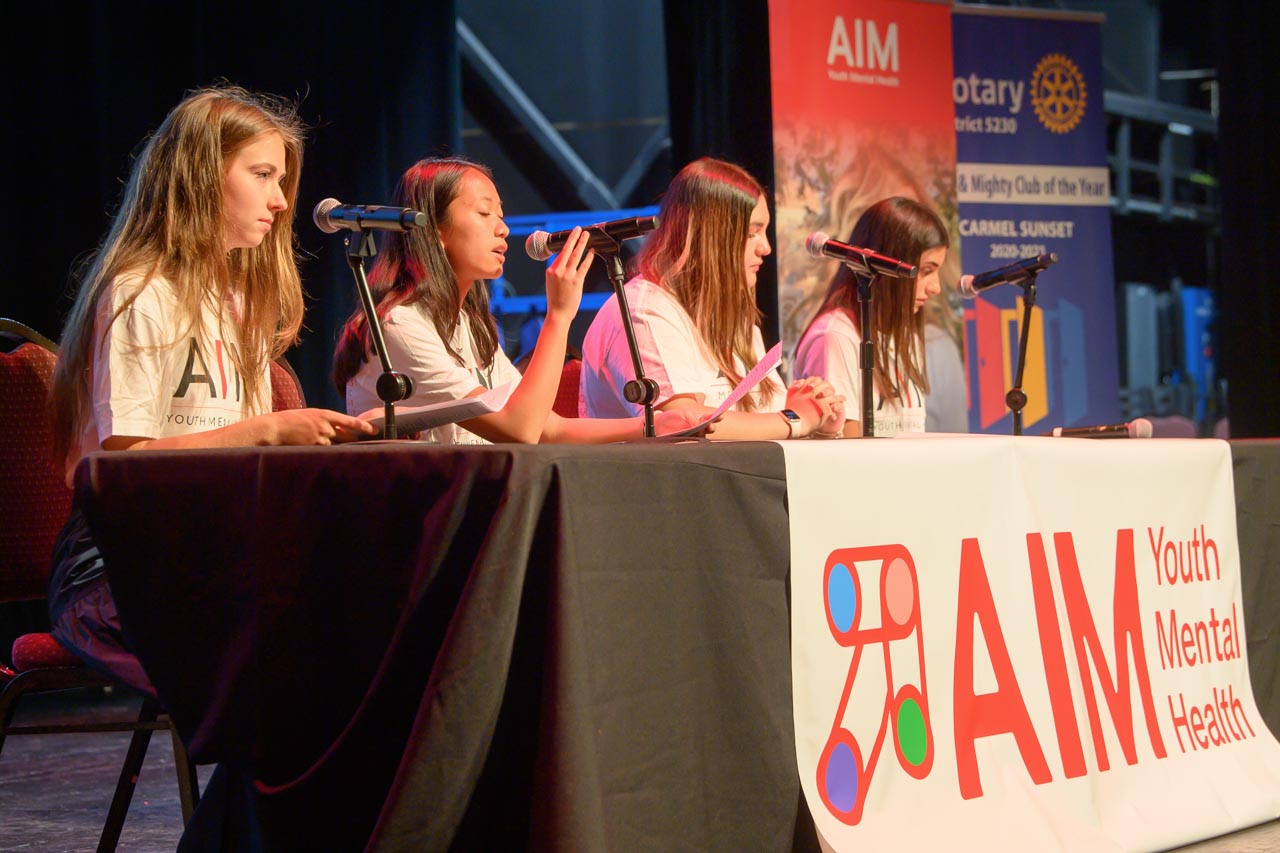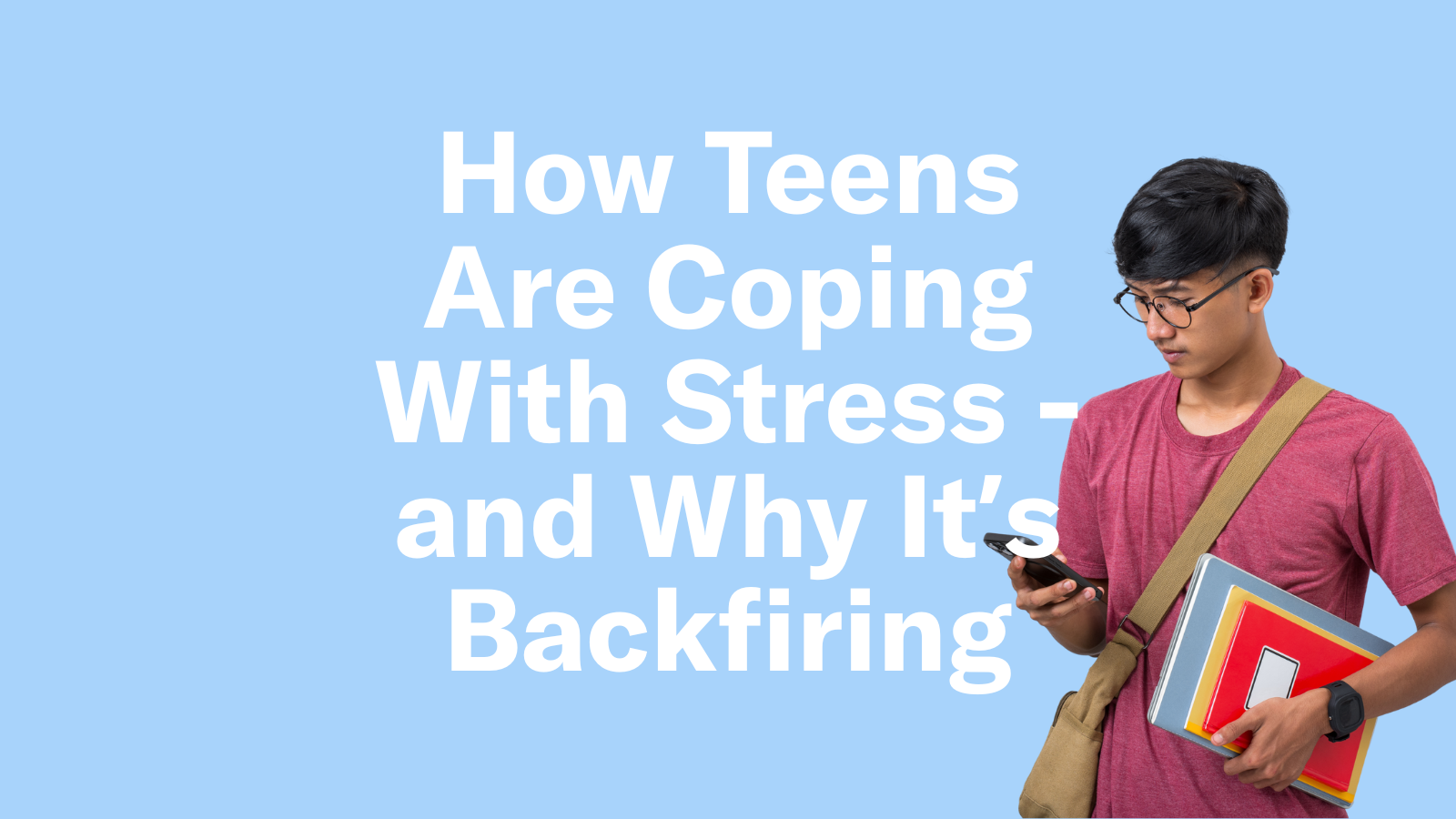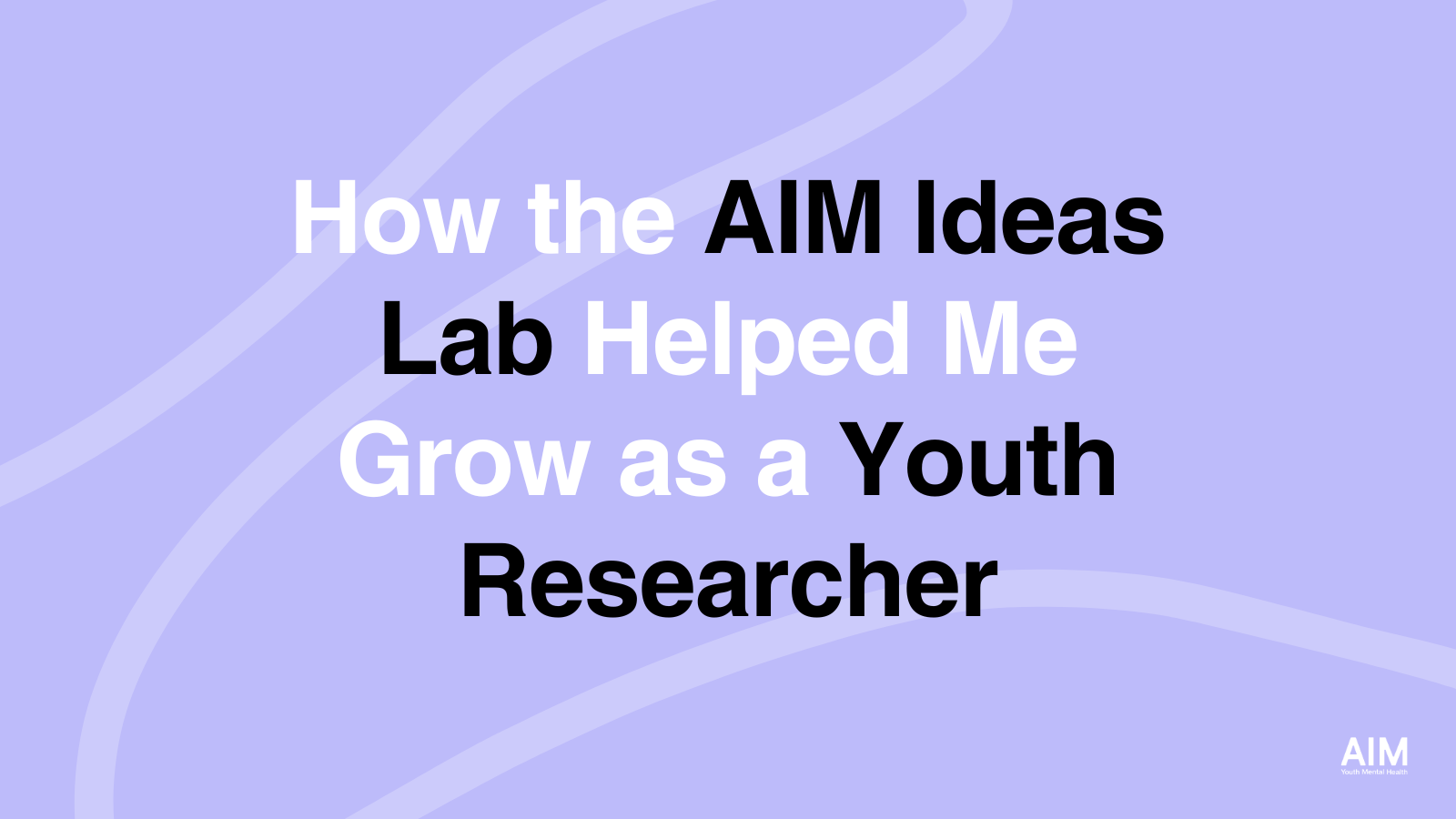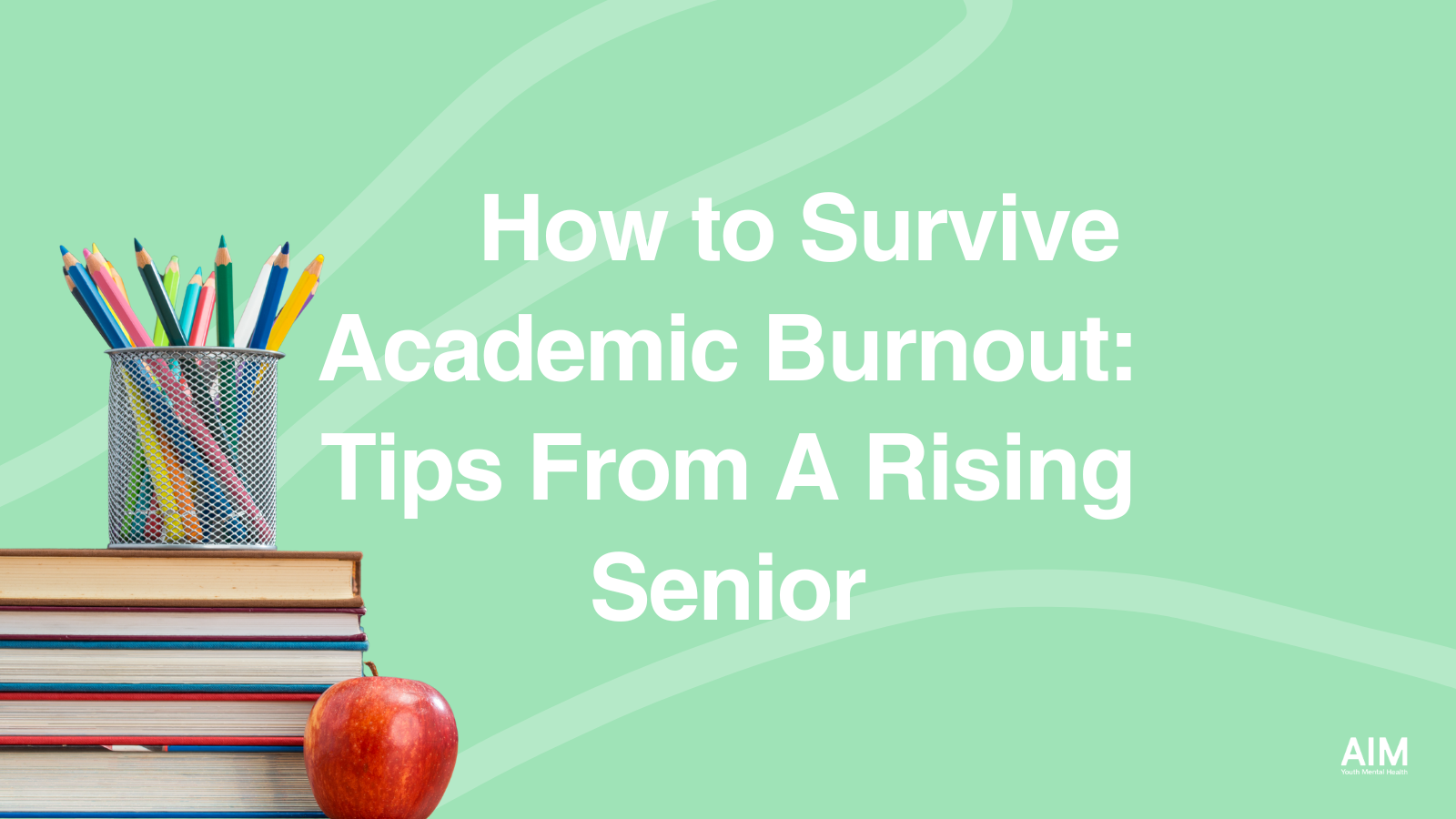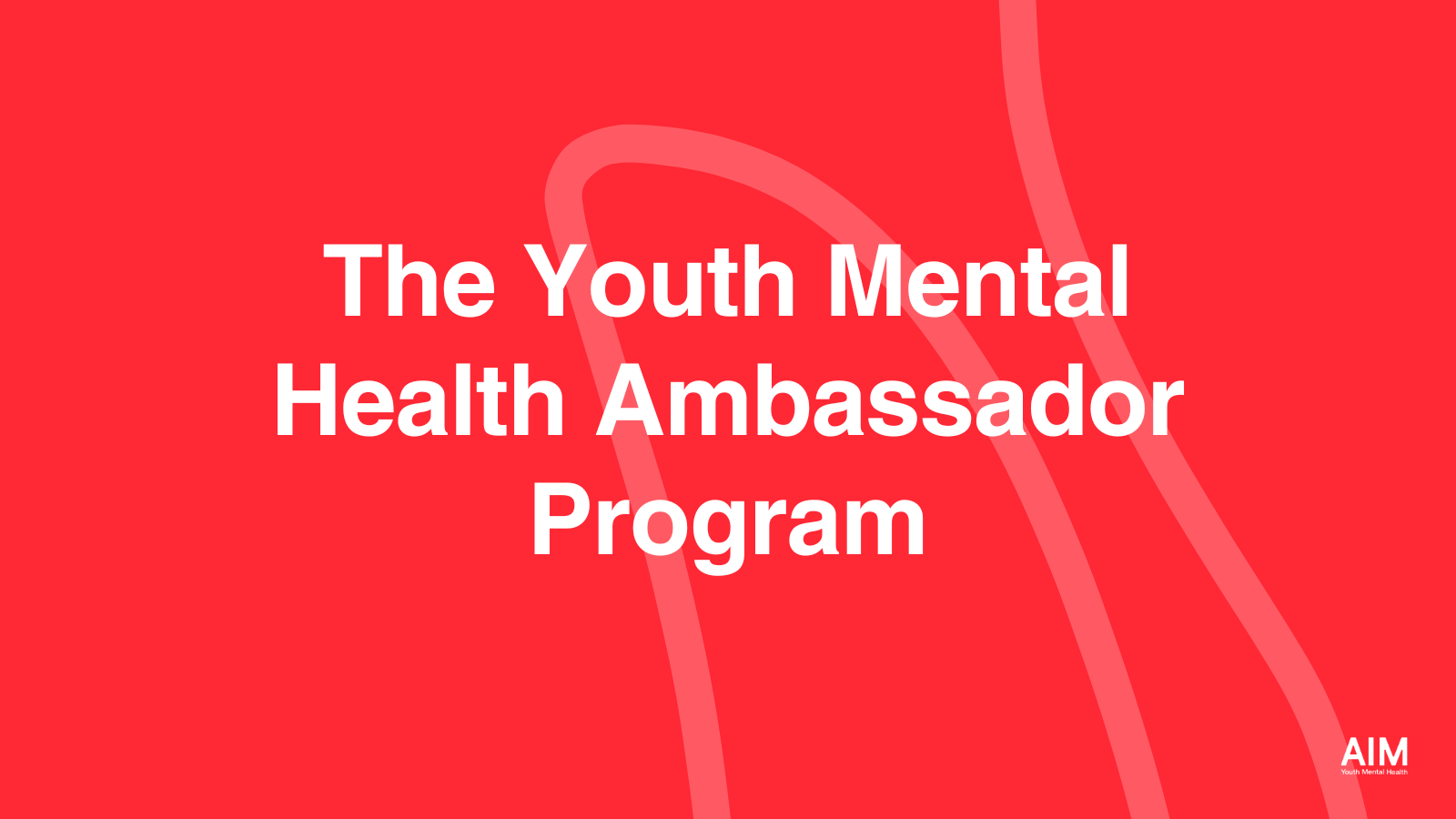Social media has become a constant presence in our lives, especially as teens. It’s where we connect, share, express, and sometimes break. As part of the AIM Ideas Lab Southern California cohort, our team, along with many others, fielded surveys asking hundreds of teens about their experiences with mental health and social media. I chose to focus my research on this topic not only because of its relevance but also because I’ve experienced it in one of the most painful ways imaginable.
Writing About the Data
One key question we asked was, “How do you believe social media affects teen mental health overall?“
Most students across all grade levels responded that social media has both positive and negative effects. However, a closer look revealed a trend: upperclassmen were likelier to report negative impacts. For example, while only 24% of 9th graders said social media is a primary contributor to poor mental health, that number nearly doubled to 45.2% among 11th graders.
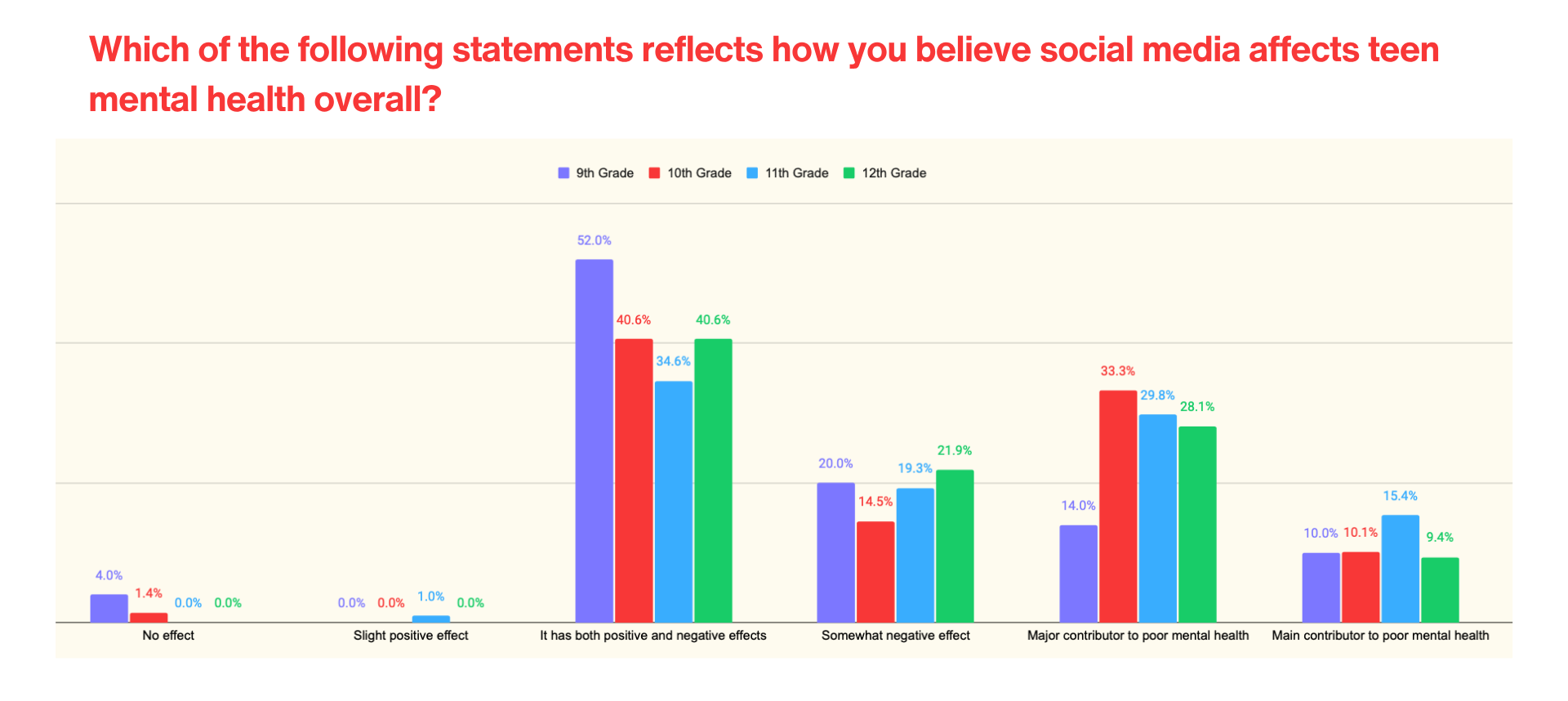
Do younger students report fewer adverse effects because they’re less self-conscious, or could it be due to tighter parental supervision and restrictions on social media use?
- Underclass students might indeed report fewer adverse effects because their self-awareness and social pressures often increase with age. Younger teens typically have more parental oversight and stricter online boundaries, which limit their exposure to some harmful aspects of social media. As they grow older, increased independence online coincides with heightened self-consciousness, potentially amplifying negative experiences.
We also broke responses down by gender identity. 56.6% of female-identifying students said social media is a significant factor in affecting their mental health, compared to 38.5% of male-identifying students. These differences highlight how deeply personal and nuanced the relationship between social media and mental well-being can be.
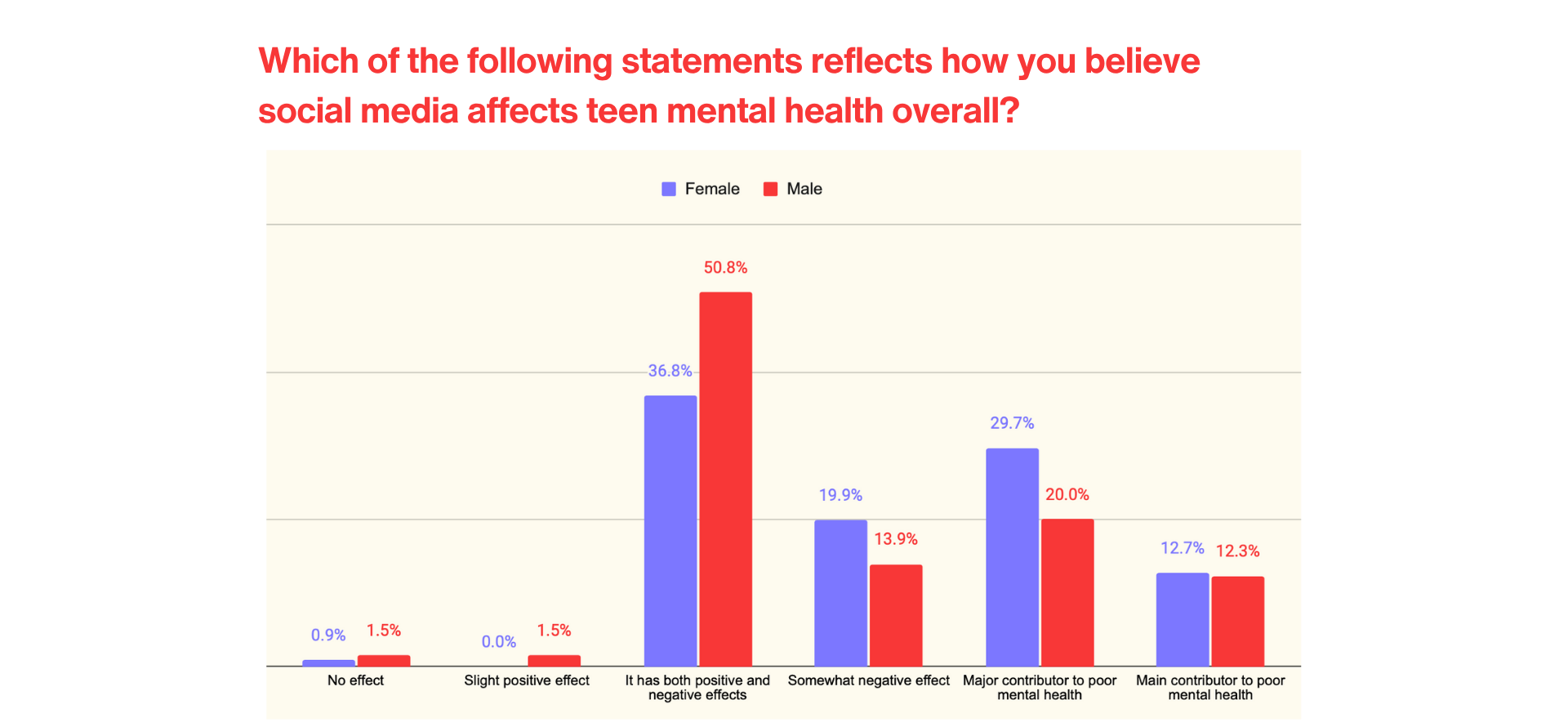
After analyzing the data, two crucial questions came to mind.
Is there something uniquely harmful about social media for girls, or is the more significant impact driven by societal pressures and patriarchal expectations around appearance and approval?
- While social media itself can affect all teens, the intensity and type of impact often differ due to societal norms shaped by patriarchy. Girls are typically socialized to place more value on external validation, appearance, and conformity to idealized beauty standards. Platforms like Instagram and TikTok emphasize visual presentation, disproportionately targeting insecurities fostered by societal expectations, which affects girls more significantly.
Do boys experience online bullying and negative attention to the same extent as girls, and if so, do the forms or impacts of this bullying differ?
- Boys do experience online bullying, but it often manifests differently. Boys typically face harassment related to masculinity or performance, whereas girls disproportionately face appearance-related harassment, sexual objectification, and more personal forms of humiliation. Research indicates girls are more likely to experience severe emotional harm from cyberbullying due to the profoundly personal nature of attacks focused on their identities and bodies. According to DoSomething.org, “Girls are more likely than boys to be victims of cyberbullying. Approximately 15% of teen girls have reported being the target of more than four different kinds of cruel and abusive online behaviors, compared with 6% of boys” (DoSomething Editors, 2018).
We also asked: Which aspects of social media negatively impact your mental health the most?
The answer was clear: body image, specifically the comparison of one’s body to others. A staggering 60.5% of students said social media negatively impacts the way they view their bodies. Interestingly, the responses were more evenly distributed when asked whether social media disconnects them from real-life relationships or activities. Some felt it had no impact, while others said it had a minor, moderate, or significant effect.
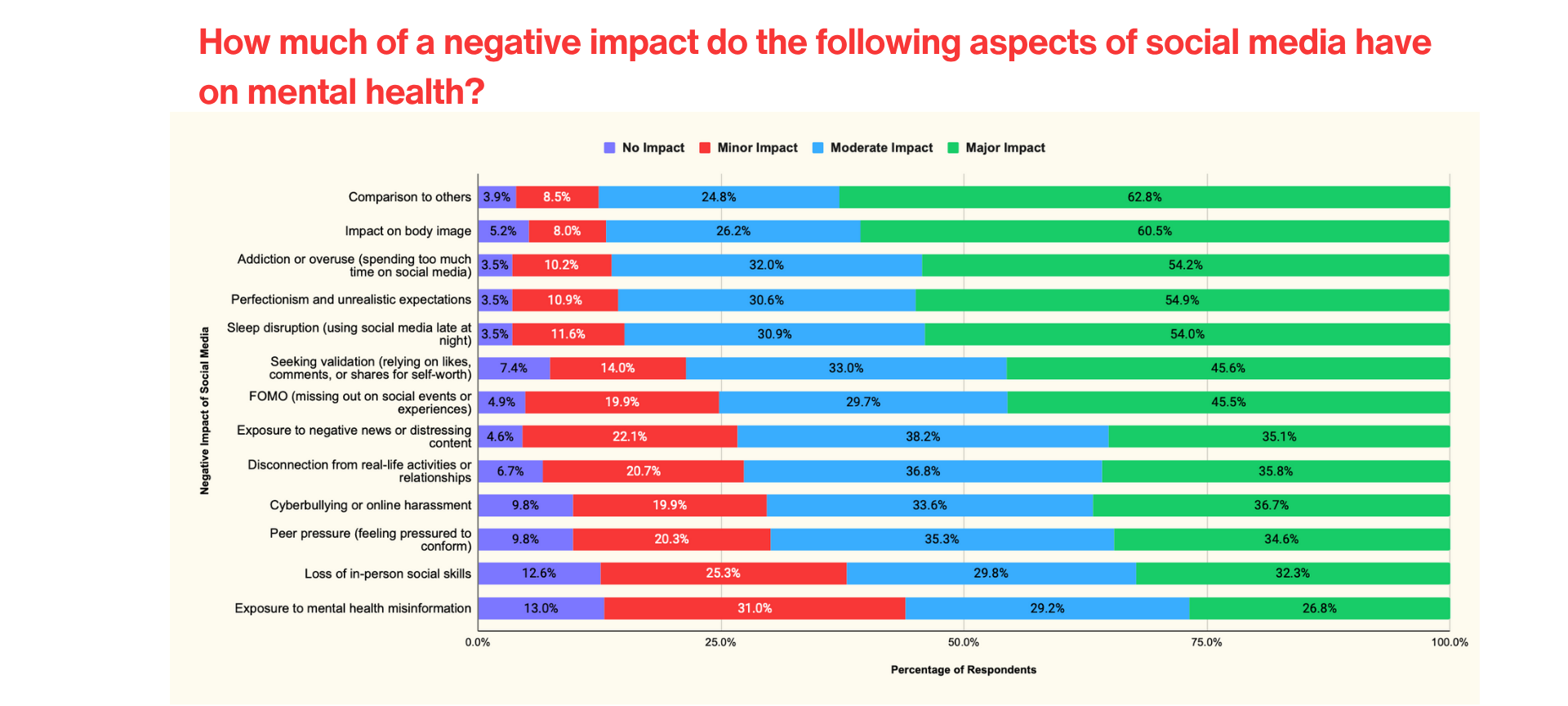
Writing About the Information
This data tells a compelling story: most teens recognize that social media is a double-edged sword, offering connection but often at the cost of self-esteem and emotional stability. Older students and female-identifying respondents report more harm. This might be connected to increased pressure to curate a particular image, both online and offline, as one approaches adulthood.
Writing About the Findings
So what does this mean? It suggests a few key patterns:
- The longer we’re exposed to social media, the more we may feel its effects.
- Girls and women, or those socialized in similar ways, tend to feel more pressure from social media expectations, especially around body image.
- Even though teens often defend their ability to stay connected in real life, many quietly admit that social media pulls them away from genuine, in-person relationships.
Writing About the Insights
I know these numbers are more than just statistics, because I’ve lived them.
A few years ago, I was the target of cyberbullying that reached over 200,000 people. I was body-shamed, degraded in public comment sections, and received private death threats. People I once considered friends turned on me. I was utterly blindsided and left to deal with the pain alone. What started as an online post spiraled into a nightmare I couldn’t escape, not even when I logged off. My sense of identity, safety, and self-worth crumbled in real-time, in front of an audience I never asked for.
That experience changed everything, and that’s why I was drawn to the survey data on social media. It was no longer just “research” to me; it was a mirror of my story. Through this work, I saw that I was far from alone. So many teens suffer silently under the pressure to look, act, and live a certain way online.
This is why we need action, not just awareness. We need schools to teach digital well-being, not just internet safety. We need more mental health support targeted toward older students, who are often expected to “have it all together” but are struggling behind the scenes. We need real conversations between teens and adults about what social media is doing to us and how we can regain control.
Recommendations
- Digital Literacy Programs: Teach students to critically engage with what they see online.
- Body Image Education: Help teens understand media manipulation and promote self-acceptance.
- In-Person Connection: Encourage offline clubs, meetups, and mental health days.
- Digital Detox/ Mental Health Days: Permit students to unplug and show them the benefits.
- Gender-Inclusive Support: Create safe spaces for all students to discuss pressure and self-image.
- Intergenerational Conversations: Break down stereotypes and build empathy between adults and teens.
Social media isn’t going anywhere, but that doesn’t mean we have to accept its most detrimental effects. With the right tools, support, and awareness, we can create online spaces that are healthier and kinder. Just as importantly, we can remind each other that there’s a human being who deserves respect, compassion, and understanding behind every username.
If my experience has taught me anything, pain can be an influential teacher, but healing comes from connection. And that’s something worth fighting for.
